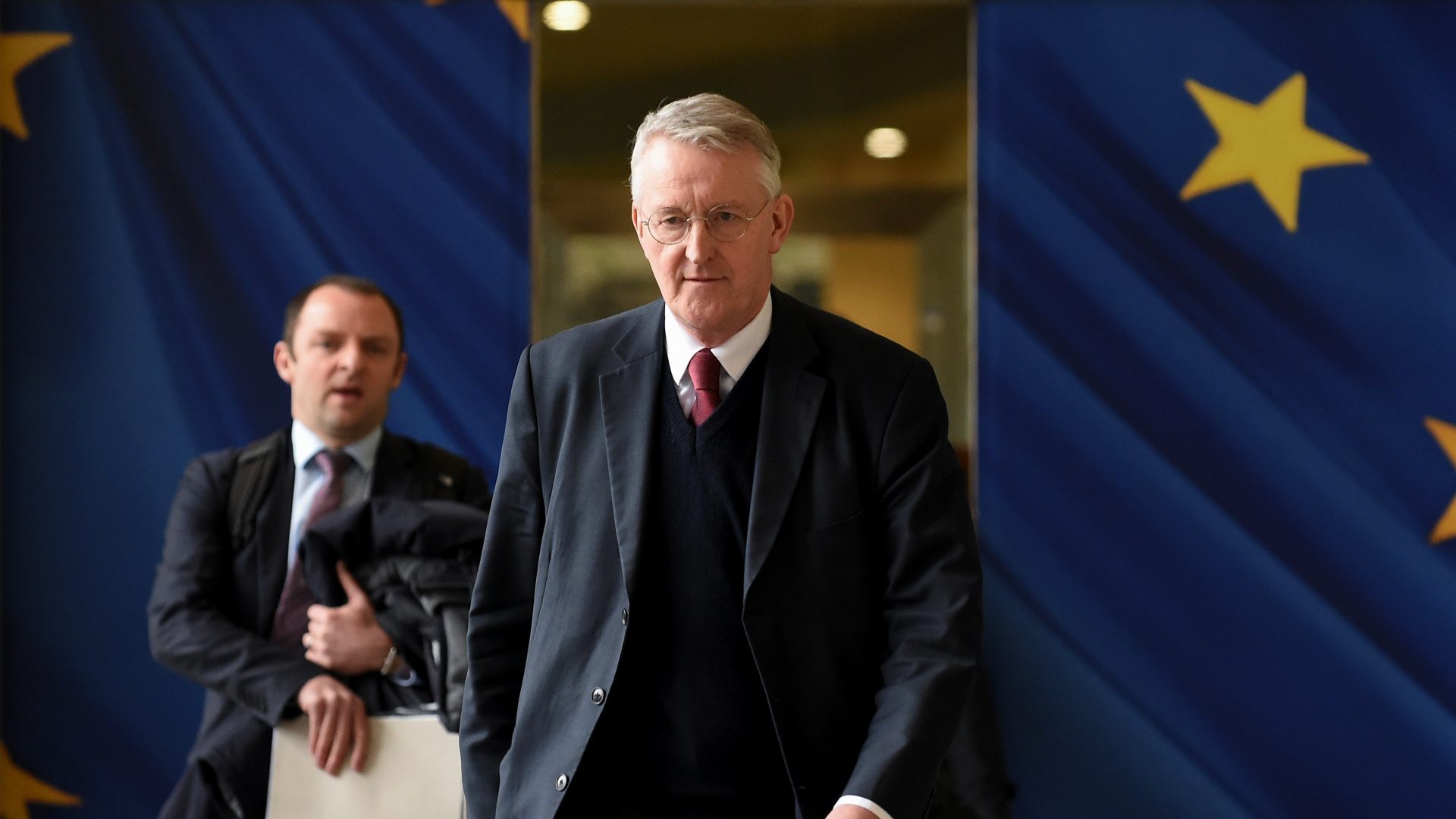Last year the House of Commons Brexit Select Committee was wound up by the government. Ministers didn’t seem terribly keen on us continuing to scrutinise the implications of the deal they had negotiated with the European Union and perhaps these last few weeks provide some clue as to why. With a government minister admitting that Brexit checks are increasing prices, the suspension of the Executive in Northern Ireland and the potential risk of a trade war with our closest neighbours, it is clear that Brexit is far from ‘done’ and that’s before we even consider the impact that new trade deals will have on our economy.
Fortunately, there were others who thought that scrutiny was still needed. I was approached by the internationalist campaign organisation Best for Britain who asked me and the Chairman of the Virgin Group, Peter Norris, to convene a new group. Made up of parliamentarians from every party represented in Westminster together with industrialists and others from different sectors of the economy, the plan was to take evidence in public on the impact of the government’s new trading arrangements.
And so, in April 2021, the UK Trade and Business Commission was born. In just one year, we’ve heard from a lot of witnesses, learned a great deal about what is happening and made representations to the government. We think our work matters and here’s why.
While those who argued for Brexit promised a brighter and more prosperous Britain, in the cold light of day, the deal the government sought has, for many, just created problems. After hearing from more than 100 witnesses from both sides of the Brexit divide, over 20 sessions and hours of testimony, we can confidently say that the change to our trading and political relationships has had profound consequences for virtually every sector of the economy. Many businesses are now facing new costs, while it is hard to find anyone who can see fresh opportunities.
Around 50% of UK trade with the EU has been subject to significantly higher barriers since January 2021 in the form of new paperwork and red tape. These added costs have left small and medium-sized enterprises in particular treading water and their trade with the EU at increased risk of no longer being viable. Owners have tried to shield their customers from increased prices but the new barriers to trade they are now facing and a lack of support from the government mean that many will soon no longer have any choice but to pass on these costs. In a recent evidence session, we were told by one supplier that the children’s school shoes they import are likely to cost between £10 and £20 more. Threats this week of unilateral action from the government over the Northern Ireland Protocol could artificially increase prices even further if the EU were to retaliate using the Trade and Cooperation Agreement.
Musicians have found expensive visa applications and customs declarations incompatible with touring across Europe and last-minute opportunities for live gigs. Labour shortages have badly affected the food and farming industry – with implications for food security – while new trade deals threaten the welfare of animals. And while all these checks and costs have been placed on British businesses trying to export to the EU, the government has yet to implement full checks on goods coming in from the EU because it is afraid of the consequences.
And on a visit to Northern Ireland last month, we learned about the complexities of the Northern Ireland Protocol. Overall, it puts Northern Ireland in a very advantageous position because it is now able to supply both the UK market and the single market of the European Union. On the other hand, the Protocol’s full application would create real difficulties for goods moving from Great Britain to Northern Ireland – something that the EU Commission has yet fully to grasp – and the more EU and UK standards diverge the greater these problems would become. That is why negotiations must continue in order to find a reasonable solution – conciliation rather than escalation – which recognises the very particular status and politics of Northern Ireland.
The overall impact of these new trading relationships has been summed up by the Office for Budget Responsibility. They estimate that both exports and imports will be around 15% lower in the long run than if the UK had remained in the EU. Brexit will also reduce long-run productivity by 4%. As a result, the OBR says that the UK has “missed out on much of the recovery in global trade.” And according to HMRC, the number of UK businesses exporting goods to the EU fell by an astonishing 33% to 18,357 in 2021, down from 27,321 in 2020.
This is all very sobering, but perhaps not that surprising given that as a country we have set out to make trade with our largest trading partner more difficult and more costly. It does however beg this question; for how much longer do ministers believe this situation is sustainable?
Brexit has happened, so we now need to address a new question – what kind of trading relationship do we want to have in future with our nearest and most important trading partners, recognising that it will be different to the one we had before? I think that new relationship will have to be created bit by bit, and step by step, as both sides come to understand that it is in their mutual interest to ease the burdens and obstacles that now affect trade between us.
That’s why ministers should start to listen to those in industry who have been consistent in their plea for visa and trading arrangements between the EU and UK to be simplified. The UK economy is under unprecedented pressures from the pandemic, inflation and falling trade, alongside increased global threats. Now, more than ever, the UK needs strong trading relationships and political partnerships across the world, but particularly with our European neighbours in view of Russia’s invasion of Ukraine. It has never been more important to get the UK’s trade policy right and that is why the UK Trade and Business Commission is seeking to use the evidence we have gathered to impress upon the government why they need to act.
Our annual report, published last month, offered 21 practical suggestions to improve cooperation and trade between the UK and our closest neighbours; most notably, the introduction of a successor to the Brexit Support Fund, digitising checks, a comprehensive EU-UK veterinary agreement and more flexible visa rules for seasonal workers, service industries and the creative sector.
It is now time to put Brexit politics behind us – on both sides of the Channel – so that the government and business can take the steps needed to maintain the country’s competitiveness and increase UK trade, inside and outside of Europe. As a commission we will continue to let the evidence speak for itself, give industry and businesses a voice and put forward constructive proposals as we hold both the EU and the UK government to account. Over the next few months we intend to reach more people and visit more places around the UK.
One year on, the work of the commission has only just begun.
Hilary Benn MP is co-convener of the UK Trade and Business Commission.



